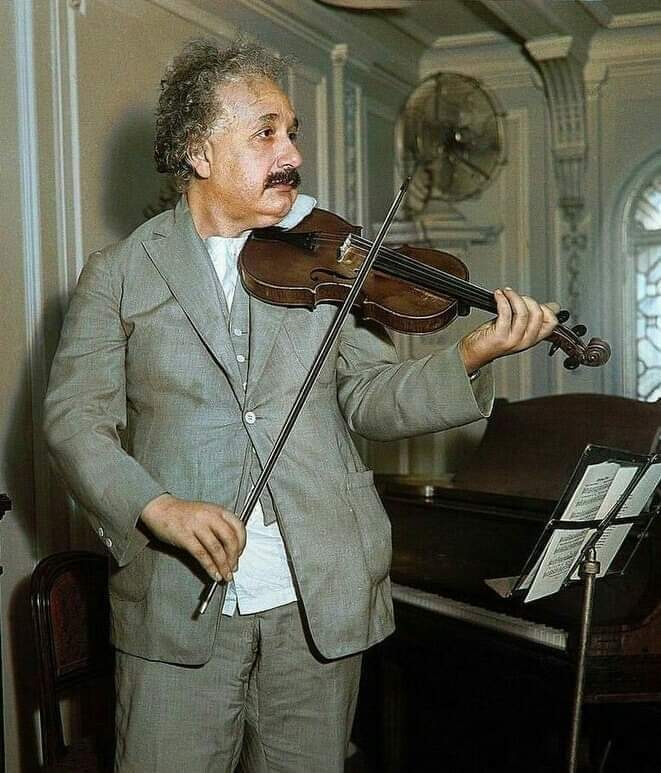Albert Einstein's reflection on the role of music in his life opens up a fascinating window into the interconnected nature of creativity, intellect, and emotion.
Albert Einstein's reflection on the role of music in his life opens up a fascinating window into the interconnected nature of creativity, intellect, and emotion. His hypothetical envisioning of a career as a musician if he were not a physicist suggests a profound appreciation for the arts, positioning them not as a mere hobby or secondary interest but as an alternate realm where his curious and explorative spirit could thrive. This perspective challenges the often rigid delineation between the sciences and the arts, highlighting instead their complementary nature.
Einstein's admission that he thinks in music reveals a deeper insight into the cognitive processes behind his groundbreaking scientific work. It implies that his groundbreaking theories and discoveries were perhaps not solely the product of logical reasoning and mathematical calculations but also of abstract, non-linear thinking patterns that music embodies. This harmonious blend of thought processes illustrates the concept of synesthetic thinking, where sensory experiences cross traditional boundaries, leading to innovative insights and solutions. It suggests that the same creativity driving musical composition can propel scientific inquiry, indicating that breakthroughs in one field could inspire or inform breakthroughs in another.
The phrase "I live my daydreams in music" and the view of seeing his life "in terms of music" further intertwine his personal and professional spheres, suggesting that music provided him with a mental and emotional landscape where he could simulate ideas, reflect on discoveries, and perhaps even escape from the pressures of his scientific endeavors. This introspection reveals music as a form of existential processing, a language through which Einstein could articulate and explore the deeper meanings of life, the universe, and everything within it. It's a testament to music's universal language, capable of expressing ineffable emotions and complex philosophical ideas in ways that words or equations might not capture.
In analyzing this quote, we are reminded of the intrinsic value of cross-disciplinary thinking and the power of integrating diverse forms of knowledge and expression. Einstein's musings serve as a call to blur the artificial lines between disciplines, suggesting that the most profound discoveries and innovations may lie at the intersections of fields thought to be disparate. His life, viewed through the lens of music, embodies the essence of creativity itself—a fluid, dynamic force that transcends conventional boundaries and speaks to the core of human experience.
Einstein’s relationship with music underscores a broader principle: the holistic nature of intellectual and creative pursuits. It encourages a reevaluation of how we categorize knowledge and talent, advocating for a more interconnected and versatile approach to learning and understanding the world.


